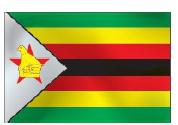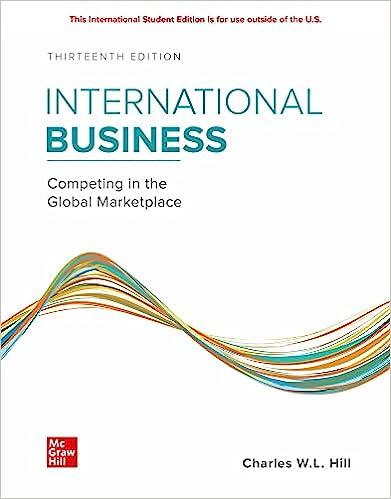In 1980, the southern African state of Zimbabwe gained independence from its colonial master, Great Britain. Speaking
Question:
In 1980, the southern African state of Zimbabwe gained independence from its colonial master, Great Britain. Speaking at the time, the late Tanzanian President, Julius Nyerere, described Zimbabwe as “the jewel of Africa.” It was a country that boasted a strong economy, abundant natural resources, and a vibrant agricultural sector. As part of the independence process, the British bequeathed Zimbabwe a number of democratic political institutions.
Zimbabwe’s birth as an independent nation was a difficult one. In 1965, the minority white rulers of what was then known as Rhodesia unilaterally declared independence from Britain, setting up an apartheid state where blacks were excluded from power. The British government wanted majority rule, stated that the declaration of independence was an illegal rebellion, and imposed sanctions on Rhodesia. Other nations that followed suit included the United States. An armed conflict ensued, with two guerrilla movements waging war against Rhodesia’s white government. One of those guerrilla movements, the Zimbabwe African National Union (ZANU) was headed by Robert Mugabe, who aligned himself and his movement with the Maoist version of communism. A combination of international sanctions and guerrilla activity eventually forced the white minority rulers of Rhodesia to end their rebellion. In 1979, Rhodesia reverted to British colonial status.
The following year, Zimbabwe gained legal independence. Robert Mugabe was elected as the country’s first prime minister. Thirty-seven years later, Mugabe was still in power, now as President. His ZANU-PF party had won every election since independence. Once a largely ceremonial position, Mugabe had systematically consolidated power in the Presidency and restricted his political opponents. He was re-elected as President in 2013 in a general election that, like many in the Mugabe era, was widely seen as rigged. The country has also been beset by endemic corruption. Corruption watchdog Transparency International recently ranked Zimbabwe as one of the most corrupt nations in the world.
Zimbabwe’s economic performance in recent years ranks among the worst in the world. Although the economy maintained a positive economic growth rate through the 1980s and 1990s, it has deteriorated rapidly since 2000.
Between 1999 and 2009, Zimbabwe saw the lowest economic growth rate ever recorded, with an annual decline of 6.1 percent in GDP. The decline occurred after Mugabe launched a “fast-track” land reform program that encouraged seizure by the state without compensation of land owned by white farmers. At the time, some 4,000 white farmers were the backbone of the country’s strong agricultural sector. The land was given to members of the ZANU-PF party and other supporters of Mugabe, who lacked experience with modern agricultural practices and had never farmed at all. In the wake of the land reform program, agricultural productivity slumped and the country is now a net importer of food.

Another drag on the country’s growth was the 2008 Indigenisation and Economic Empowerment Act, which required that enterprises doing business in Zimbabwe have at least 51 percent local ownership. In practice, this often meant high-ranking ZANU-PF party members. After the act was passed, a number of foreign corporations doing business in the country pulled out.
The country’s mining sector remains potentially lucrative, with large platinum and diamond deposits mined by private enterprises, but almost all of the licensing revenues due to the state have reportedly disappeared into the hands of army officers and ZANU-PF politicians. Taxes and tariffs are high for private enterprises, which discourages private business formation, while state-owned enterprises are strongly subsidized. Tourism, once a big revenue earner, has declined as Zimbabwe’s wildlife has been decimated by poaching and deforestation. As economic activity slumped, the country’s formal unemployment rate reached a staggering 80 percent.
To complicate matters, Zimbabwe was devastated by the AIDS epidemic, with HIV infection rates hitting a high of 40 percent of the population in 1998. Due to AIDS and other public health problems, life expectancy fell to just 43.1 years in 2003, down from 61.6 years in 1986. By 2014, with HIV prevalence down to 15 percent, life expectancy had risen back to 54 years.
Questions
1. Why has Zimbabwe’s economic performance been so poor?
2. Do you think Zimbabwe’s economic performance would have been better under a different system of government? Which one? Explain your reasoning.
3. What steps need to be taken now to improve the economic outlook for Zimbabwe?
Step by Step Answer:

ISE International Business Competing In The Global Marketplace
ISBN: 9781260575866
13th International Edition
Authors: Charles Hill





